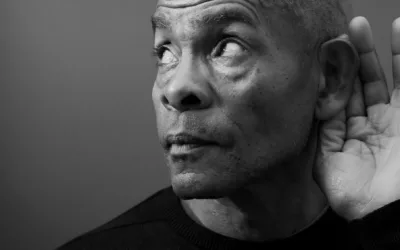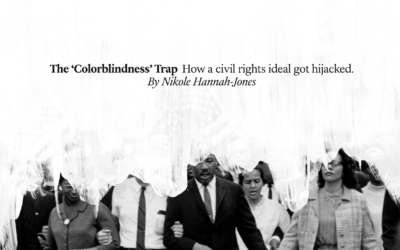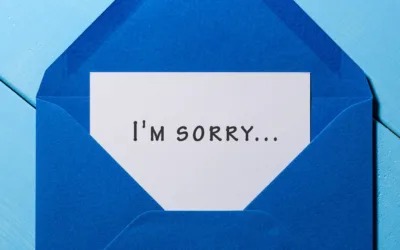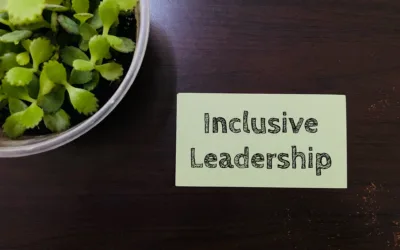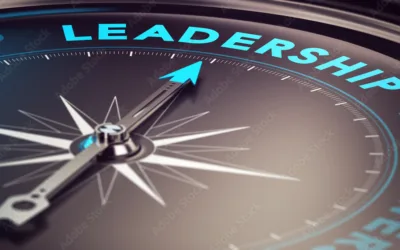28,000 Federal Employees Forced To Confront Their Bias
Article about unconscious bias training for Federal Employees.
28,000 Federal Employees Forced To Confront Their Bias As police departments across the country conduct implicit bias training for their officers, the Department of Justice (DOJ) is making sure that 28,000 of its own employees receive the same instruction. On Monday, the department announced that FBI and Drug Enforcement Administration (DEA) agents, U.S. Marshals (USMS), U.S. attorneys, and agents with the Bureau of Alcohol, Tobacco, Firearms and Explosives (ATF) will undergo the same training mandated for the police departments that have long histories of discrimination.
A growing body of research shows that implicit bias distorts how people perceive those around them and project stereotypes onto them, even if they’re not consciously aware of doing so. That bias informs every aspect of the criminal justice system, from who police arrest to the types of punishments that judges and prosecutors dole out.
The DOJ’s new training will incorporate three levels of instruction, to break down how implicit bias specifically impacts executives, supervisors, and people in the line of duty. Fair and impartial training typically includes a discussion of what implicit bias is, the impact that it has on community engagement, and skill-building for how to make decisions impartial and effective.
More often than not, black people have a target on their backs. Officers are more likely to perceive black faces as criminal, and view young black boys as older and guiltier than their white counterparts. As a result, police disproportionately stop and detain black people, even when there isn’t just cause. But implicit bias also seeps its way in courtrooms across the country. Medical examiners and forensics experts are biased in their collection of evidence and final assessments about a crime that’s been committed. Black men and women receive longer sentences for the same crimes committed by white people, because of prosecutors and judges’ biased opinions. Black defendants are also more likely to be sentenced to death.
A mental shortcut becomes almost irresistible
During his speech about race and policing last year, FBI Director James Comey addressed these biases, saying, “A mental shortcut becomes almost irresistible and maybe even rational by some lights. The two young black men on one side of the street look like so many others the officer has locked up. Two white men on the other side of the street—even in the same clothes—do not.”
But until this week, FBI agents weren’t required to participate in implicit bias training. On Tuesday, FBI leaders will join Deputy Attorney General Sally Yates and top officials from the DEA, ATF, and USMS to kick off the training mandated by Attorney General Loretta Lynch.
“Our officers are more effective and our communities are more secure when law enforcement has the tools and training they need to address today’s public safety challenges,” Lynch said in a statement.
In recent years, the DOJ has made implicit bias training a requirement for police departments in major U.S. cities, including Los Angeles, New Orleans, Cleveland, Seattle, and Philadelphia. Additional training is usually part of a larger department overhaul mandated by the DOJ, when it determines that policing is unconstitutional and, often, racially discriminatory. This year, Ferguson and Newark, New Jersey agreed to additional training, when they accepted consent decree terms in March.
More From Our Blog…
Understanding Employee Responses to DEI Initiatives: Insights and Strategies
A recent study sheds light on a previously underexplored aspect of DEI training. While much focus has been placed on the facilitators, trainers and the content of DEI programs, this study examines how employees actually respond to the training. Published in Harvard...
SHRM’s Removal of “Equity” From DEI Framework: A Step Backwards Amid Growing Backlash
In a stunning step in the wrong direction, the Society for Human Resources Management (SHRM), the world’s largest HR association, has removed “Equity” from its “IE&D” framework. What message does this send, especially amid strong pushback against Diversity, Equity...
Navigating the Shifting Landscape of Diversity, Equity and Inclusion Programs
In the midst of the evolving landscape of corporate diversity initiatives, there's a seismic shift underway. The once-prominent acronym "DEI" - representing diversity, equity and inclusion - is notably absent from many company discussions. As explained in the article...
A Groundbreaking New Course: Understanding the Complexity of the Asian American Pacific Islander Experience
With over two decades of experience in the educational sector, Hideko Akashi, founder and lead consultant at Liberation Consulting, has been a steadfast advocate for diversity, privilege, social justice, inclusion and equity. Now, she's opening a new chapter with the...
The Deafening Silence of DEI Allies: A Call to Action in Troubled Times
As we commemorate the legacy of Rev. Dr. Martin Luther King Jr., his poignant words echo through the corridors of history, reminding us of the profound impact of silence in the face of injustice.” In the end, we will remember not the words of our enemies, but the...
DEI LEAP: Empowering Leaders Through Turbulent Times
DEI LEAP: Empowering Leaders Through Turbulent Times As we all know, 2024 has brought a wave of attacks against DEI. A handful of outspoken critics, such as Elon Musk, are misrepresenting DEI and attacking the strategies and practices that are creating more equitable...
The Colorblindness Trap
Read. This. Article. It's important. The Color Blindness Trap: How a civil rights ideal got hijacked Nikole Hannah-Jones is a domestic correspondent for The New York Times Magazine focusing on racial injustice. Her extensive reporting in both print and radio has...
The Unbearable Lightness of the “I’m Sorry if You Were Offended” Apology
Have you ever come across that non-apology apology? You know, the one that goes, "I’m sorry if you were offended," or its close cousin, "I’m sorry that you…" These non-apologies aren't just weak; they can actually inflict more harm and exacerbate hurt feelings. They...
The Power of Diversity: McKinsey’s Latest Report Reinforces the Business Case for Inclusive Leadership
In an era where corporate social responsibility is no longer just a buzzword but a fundamental aspect of successful business strategies, McKinsey's latest report, "Diversity Matters Even More: The Case for Holistic Impact," underscores the undeniable link...
“Laying Low” Is the Wrong DEI Strategy
“The ultimate measure of a man is not where he stands in moments of comfort and convenience, but where he stands at times of challenge and controversy.”- Martin Luther King, Jr. In an era marred by politicized attacks on diversity, equity and inclusion (DEI), Shaun...





